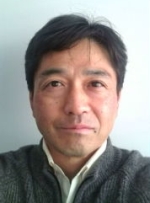The 25th Workshop of the Japanese Society for the Study of Xenobiotics
Toshio Teramura The 25th Workshop of the Japanese Society for the Study of Xenobiotics will take place at the Tetsumon Memorial Hall (The University of Tokyo) on May 12 and 13 (Thurs. and Fri.), 2011. The theme of the workshop is ‘Stop the termination of new drug development due to toxicity’. The workshop has also been subtitled, ‘What can be done by pharmacokinetics researchers?’ First off, we would like the pharma company researchers involved in pharmacokinetics to be asked three questions:
This, our 25th workshop, has been planned so that you may all contemplate and discuss the pharmacokinetical cause(s) likely hiding in the dark recesses of toxic events. We would also like for the workshop to serve as a venue in which to argue/debate upon research methods and results that contribute to identifying the cause(s) of toxicity. The fusion (cooperation) of efforts by toxicity researchers and pharmacokinetics researchers may represent one highly effective way to lower the incidence of toxicity. As such, we would be very pleased to have the participation of toxicity researchers, who up until this point in time have not been involved with scientific societies related to pharmacokinetics. We would also very much like professors, lecturers, and the like in academia to provide us with new perspectives and philosophies in these respects. The first day (afternoon) of the workshop will feature three topics dealing with the latest ADMET research, specifically miRNA, iPS cells, and metabolomics. And, in the morning of the following day, plans are to cover three topics in relation to the collaboration between toxicity researchers and pharmacokinetic researchers. We will be graced by the presence of one pharmacokinetics researcher from a pharma company along with two toxicity researchers. And, for the afternoon session, we have prepared topics focusing on strategies to avert toxicity. With particular emphasis on transporters, toxicity biomarkers, idiosyncratic metabolites, and the like, we hope that we can make the workshop a golden opportunity to delve into essential discussion on stopping the suspension of new drug development. Each of the lectures will be provided by some of the best researchers currently working at the front lines in their fields. Set somewhat on the long side, each lecture will run for 45 minutes and be followed by a 5-minute Q&A session. If, in some cases, this proves to be too short in order to sufficiently cover a topic, the 10-minute recess can also be used. We are sure that the workshop will be a source of new ideas and breakthroughs, so urge all to come and participate. (Please feel free to come in casual attire.) |
